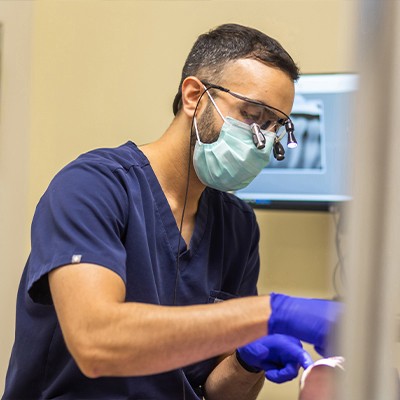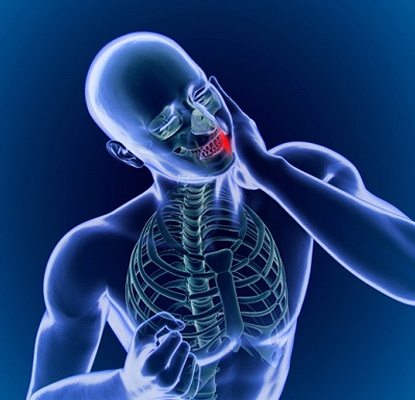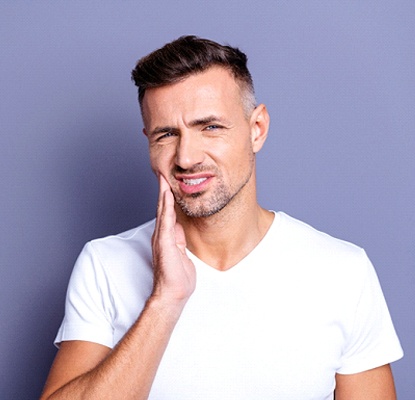TMJ/TMD Therapy – East York, ON
Bringing Jaw Pain to a Halt

If you find it difficult to open or close your mouth or frequently experience jaw pain, there is likely a problem with the temporomandibular joint (TMJ) that connects the jaw to the skull on either side of your head. A disorder with these joints can create a wide range of symptoms; if you want to live a full life free of discomfort and pain, call Donlands Family Dentistry to ask about TMJ therapy in East York.
Why Choose Donlands Family Dentistry for TMJ/TMD Therapy?
- Effective Alternatives to CPAP Therapy
- Knowledgeable and Experienced Dentists
- Evening Hours for Your Convenience
What is a TMJ Disorder?

A TMJ disorder (TMD) could refer to several different issues. The articular disk in the TMJ might have become displace, or the joint components might have broken down from aging or overuse; it might also manifest as pain in the muscles around the TMJ. There are multiple possible causes for a TMD, such as injury, arthritis, and grinding and clenching of the teeth. Other risk factors include stress, preexisting health problems, age, and gender (women are statistically more likely to develop a TMD).
Signs and Symptoms of TMJ Disorder

Depending on the cause and nature of your TMD, a diverse range of symptoms might appear. Possible signs of a TMD include:
- Pain, tenderness and swelling in the jaw
- A chronic headache
- Hearing a clicking or popping sound whenever you open or close your mouth
- Locking of the joint that stops your from moving your jaw
- Pain in your head, neck, shoulder and back
- Ringing or pain in your ears
- Grinding and clenching your teeth at night
The longer a TMD is left alone, the worse the symptoms will get. Schedule an appointment with Dr. Nabeel as soon as possible as soon as you suspect there might be a problem.
How to Treat TMJ Disorder

There are a few different approaches to treating a TMD. CPAP therapy is the most well-known, but many patients can’t tolerate the bulky, noisy devices. Here are a few alternative treatments that are offered at Donlands Family Dentistry.
Occlusal Splint Therapy
An occlusal splint is an oral appliance that helps treat TMD by repositioning the jaw in a way that allows the jaw muscles to relax, protecting the joints. In cases where the patient is grinding their teeth at night, an occlusal splint can keep the upper and lower arch apart. Not only does this help relieve your TMD-related pain, but it also protects your teeth from damage.
Bite Adjustment/Equilibration
If the root cause of a TMD is a misaligned bite that stops the jaw from reaching a natural resting position, it can often be fixed by reshaping a few teeth so that the upper and lower teeth come together correctly. This often involves the removal of a small amount of enamel from strategic points of contact, which allows the maximum number of teeth to come together evenly.
